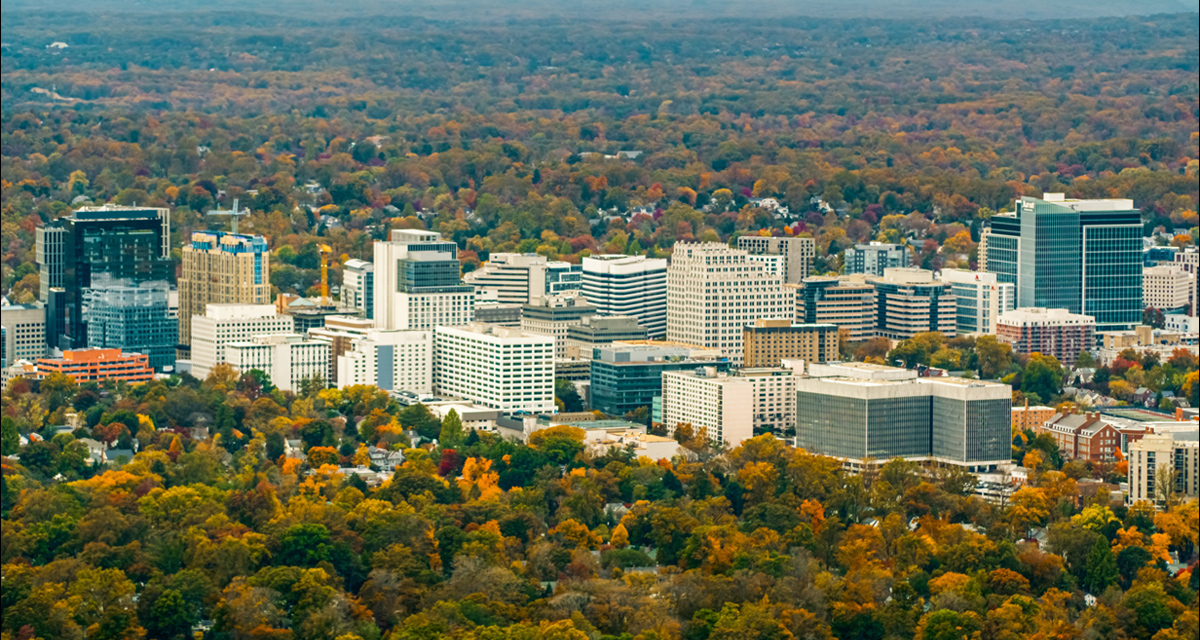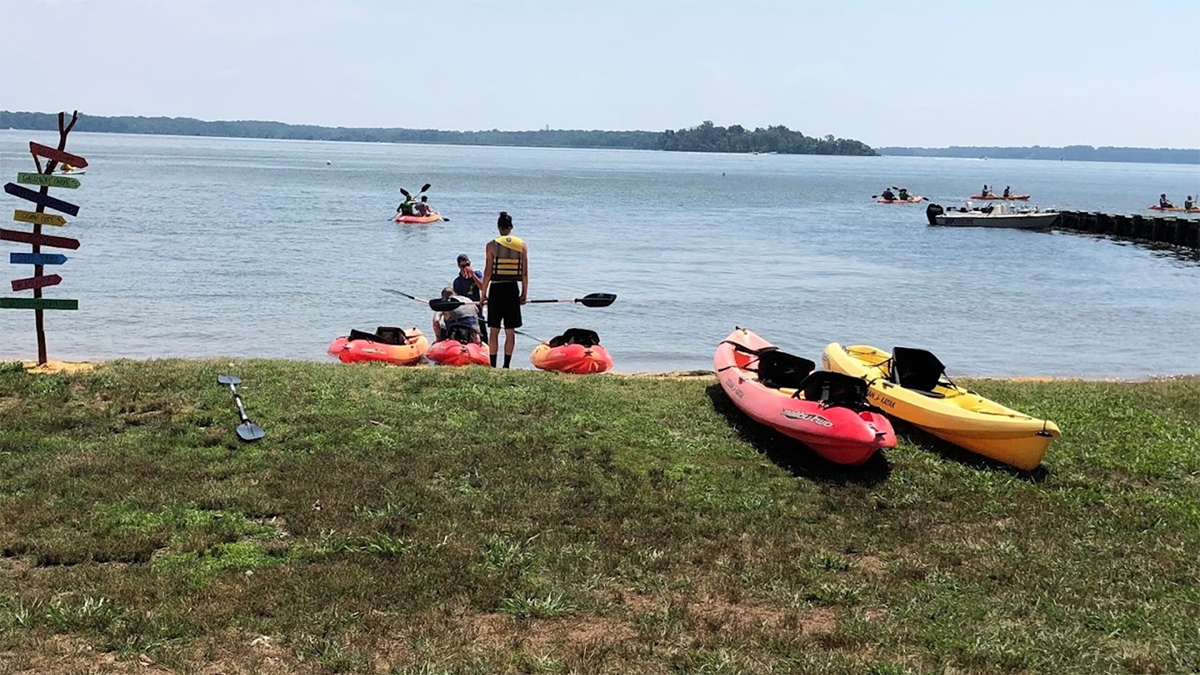
Substance use disorder (SUD) has an enormous impact, not only on the individual struggling but also on their loved ones. It is not easy to watch someone you love suffering from a life-altering issue. SUD is not a life sentence, however – you can break the cycle and achieve sobriety. Getting sober in Bel Air, Maryland, is possible. In fact, it’s a great place to begin your journey to recovery.
Fortunately, many local outpatient options can help you find the personalized support and connection you need from your community. Maryland Recovery offers effective treatment for those who are looking for help getting sober.
Why Choose Bel Air, Maryland, for Your Sobriety Journey?
Bel Air, like Maryland as a whole, has seen a high number of overdose-related deaths. According to this Opioid Operational Command Center Review of Demographic Overdose Trends in Maryland by Local Jurisdiction, 2020, there were 2,799 deaths related to overdoses in the state. Unfortunately, the number of deaths related to alcohol and other substance use disorders that year has been the highest on record within the state. Still, despite the SUD crisis in Maryland, a strong community has also been built for those in recovery.
As a result, many resources are available for those getting sober in Maryland, including detox centers, inpatient and outpatient programs, and support groups like Alcoholics Anonymous and Narcotics Anonymous.
As you can see, there are several options for care in Bel Air, but outpatient programs are highly recommended and more convenient than inpatient care. With outpatient programs, you can access treatment and therapy sessions that fit your schedule, meaning you can attend a program and return home on the same day.
Depending on the treatment you receive, you may have daily visits, or you may only be required to attend every other day. You can continue your normal daily routine while also receiving treatment. Keep in mind that the best outpatient programs help you establish a support system that can keep you on track while you’re not in treatment.
Understanding Outpatient Rehab in Bel Air
Outpatient treatment has many benefits, and it could be an ideal fit for you. However, there are several differences between inpatient and outpatient programs, and it’s important to understand them before starting your recovery journey.

What Is Outpatient Treatment?
Inpatient programs provide residential treatment that includes around-the-clock care and support from healthcare professionals. They are intended to provide continual treatment for those who are going through withdrawal. Like outpatient programs, inpatient programs provide educational resources, therapy, and support to those who are looking to remain in recovery.
Outpatient treatment is designed to provide flexibility, but many individuals in recovery transition into sober living environments rather than returning directly to work or home. Instead of staying in a facility full-time, you attend scheduled treatment sessions during the day or evening while building a support system in a structured setting.
Outpatient programs offer many of the same resources as inpatient programs, including support groups, individual and family counseling, and educational tools to aid recovery. While outpatient care is considered less intensive than inpatient treatment, it remains a vital option for those who need continued support while working toward long-term sobriety.
Benefits of Outpatient Drug Rehab in Bel Air
Finding drug rehab in Bel Air may seem daunting, as there are a variety of outpatient programs available in the area. When choosing a program, consider its location and whether it is convenient for you. You will also need to determine how long the program will take to complete and think about your financial options.
For those who do not have insurance, look for available payment plans, loans, or possible grants to make treatment more affordable. Fortunately, most outpatient programs are much more affordable than inpatient programs.
Outpatient programs give you the tools that you need to build a solid foundation for maintaining long-term sobriety, as well as resources for staying sober and continuing your personal growth even after treatment has been completed.
Many programs offer life skills training to help you learn how to implement healthy coping skills into your life. If you have experienced serious trauma, many outpatient programs offer trauma care to assist you in learning how to cope, accept, and thrive after a traumatic event.
For those who have suffered from loss and struggled with grief, grief and loss groups may be available as part of the program. All of these resources are essential to assist you in reaching recovery and starting a new, healthier lifestyle.
Make sure that whatever program you choose can be tailored to meet your needs. Everyone’s road to recovery is different, as are their needs for treatment. This can include the types of treatment involved in the program, the amount of counseling sessions needed, and the length of the program.
Steps to Getting Sober in Bel Air
Recovery is not something that happens within a set number of days, weeks, or months. Rather, it is a lifelong process that involves implementing new lifestyle changes that require time, effort, and the support of friends and loved ones.
Consider taking the following steps to become sober in Bel Air:
1. Acknowledge the Problem
The first step in sobriety, and likely the most important, is recognizing that you will never achieve recovery without help. Many struggling with SUD deny there is a problem, which means identifying the problem is crucial. If you’re unsure whether your relationship with your substance of choice constitutes SUD, speaking with a doctor or a recovery center can be helpful. Once you’ve recognized the issue, being ready and willing to make a change and begin your road to recovery is key.
2. Seek Professional Guidance
Once you have determined that you need help, it’s time to look for professional help to guide you on your journey. Maryland Recovery is one of the leading outpatient providers in the Bel Air area.
Here, anything is possible. Our holistic addiction treatment program focuses not just on the chemical dependency that causes SUD but also on the physical, mental, and spiritual issues involved. Services offered include therapy, group sessions, relapse prevention, life skills coaching, meditation and mindfulness, medication management, and counseling and psychiatric services.
3. Build a Local Support Network
Staying sober requires a solid support network filled with loved ones and other people in recovery from SUD. It’s difficult to stay on the road to recovery on your own, as triggers will surely arise. Life is messy and rarely easy, and circumstances can tempt you to revert back to unhealthy coping mechanisms, including using substances once again.
Having the support of friends and family to check in during hard times, encourage you when you’re tempted to use, and round out your relapse prevention plan can make all the difference. Connecting with local support groups is also important. There are many reasons support groups like AA and NA continue to meet each week. These groups are made up of individuals who are struggling with similar issues and can walk beside you through hard times.
Tips for Staying Sober in Bel Air
Beginning recovery is an outstanding achievement, but remaining in recovery can be just as challenging. Aside from having your loved ones’ support and attending support groups, there are many other things you can do to be proactive in your quest to stay sober.

Engage in Healthy Activities
One way to help yourself remain sober is to implement healthy activities into your daily routine. Frequent exercise is a great way to improve your health and well-being. Consider trying new activities, continue participating in an activity you currently do, or return to something you enjoyed in the past.
Yoga and meditation are great ways to center both your mind and body. Join a fitness center that offers a variety of exercise machines and equipment. If you prefer something more simple (and free), visit a local hiking trail to do some cardio while enjoying the beauty of nature.
Avoid Triggers and High-Risk Environments
A trigger can cause someone who has struggled with SUD to experience a sudden urge to use the substance of choice. It is expected, and very normal, for those in recovery from SUD to be triggered. Everyone’s triggers are unique, so what may be a trigger for one person may not be for another. For example, some may be triggered by spending time with certain individuals or in certain environments. Another trigger may be experiencing stressful situations.
There are several ways you can avoid your triggers and high-risk environments. First, it’s important to understand what triggers you and what environments are too risky so that you can avoid them. Try to fill your downtime with positive things. If you have too much free time, this can cause boredom, which can lead to the desire to use substances again. Pick up a new hobby or go back to a hobby that you once enjoyed.
Whenever you face a setback in your recovery journey, which will happen, try to look at it as a learning experience. The belief that setbacks indicate an inability to ever achieve sobriety only slows down your progress. In fact, it can lead to a relapse if you allow yourself to spiral into negativity.
Many people develop SUD after they’ve used substances to numb pain or discomfort experienced due to their life circumstances. Changing your mindset about feeling uncomfortable is a part of the recovery process. Understanding that discomfort happens in everyday life and learning how to handle it in a healthy way is a significant step in your recovery journey.
Why Maryland Recovery Is Your Partner in Recovery
Maryland Recovery’s outpatient program has been one of the leading choices for those beginning their recovery from SUD in the Bel Air area. You’ll find affordable, extensive treatment right in the heart of town, especially convenient for those who live in the surrounding areas. Here, the staff uses holistic methods to help those struggling with SUD find long-term sobriety, regardless of where they are in the recovery process.
Our alumni can attest to the effectiveness of our programs:
“saved [her] life”
and gave her the chance to see what her life could be like if she were sober.
“forge a new future for [himself].”
Discover how Maryland Recovery can assist you in getting sober in Bel Air and kickstarting your recovery journey.
Start Your Recovery Journey in Bel Air

Addiction can feel debilitating and endless for those seeking sobriety, but with all the resources available in Bel Air, there is hope. Quality outpatient programs are available to provide the treatment and supportive community you need.
For over twenty years, Maryland Recovery has provided affordable, holistic, and effective drug and alcohol treatment programs. You, too, can reach recovery with personalized care and extensive aftercare through our MD outpatient recovery center. Take your first step to sobriety by contacting Maryland Recovery for a consultation.
Sources:
- Maryland Overdose Operational Command Center. (2023). OOCC grants reference demographic information. Maryland Department of Health. https://stopoverdose.maryland.gov/wp-content/uploads/sites/34/2023/03/OOCC-Grants-Reference-Demographic-Information-.pdf
- Maryland State Archives. (n.d.). Mental health and addiction services. Maryland Manual On-Line. Retrieved March 10, 2025, from https://msa.maryland.gov/msa/mdmanual/16dhmh/mha/html/mhaf.html

A solution focused therapist with over a decade in the helping services, I am attuned to the broad expanse of holistic recovery. My mission is inspired by the work of Joseph Campbell, Dr. Wayne Dyer, and Fr. Joseph Martin. I am well versed in the specific needs of the recovery community and am trained in EMDR.








